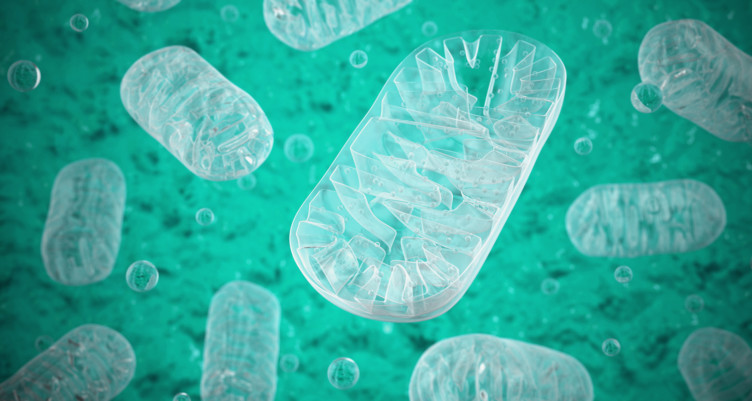How to Own Your Gut Bacteria and support a healthy gut

- Your digestive system is a barrier that keeps disease-causing pathogens out of your bloodstream.
- An unhealthy gut biome can lead to a condition known as leaky gut — where larger than normal openings occur between cells in the walls of your GI tract, allowing particles to enter the body which would otherwise pass through the gut. An unhealthy gut biome can lead to poor digestive health.
- Diet is by far the most important factor in maintaining a healthy gut biome, which supports your immune system and digestion.
Your gut bacteria affect your entire body, including your sleep quality, mood, and appetite. If all is going well, these organisms live in perfect harmony with you, their host. However, your gut microbiome is influenced by everything from your diet to your stress levels. If things go south, you can end up with a range of digestive and metabolic conditions that negatively affect your entire body — including what is termed leaky gut. Here’s what you should know about leaky gut, including tips to strengthen your gut lining.
What is leaky gut?

Your digestive system, also known as your gastrointestinal (GI) tract, acts as a barrier that protects you from the outside world. If things are working the way you want, your GI tract allows nutrients in and keeps disease-causing pathogens out.
Gut microbes play a big role in maintaining the integrity of the gut lining. Healthy gut bacteria produce short-chain fatty acids and proteins that help keep your intestinal wall strong.[1]
An unhealthy gut microbiome can influence the development of leaky gut, which is just what it sounds like — a condition where larger than normal openings occur between cells in the walls of your gut.[2] Also known as increased intestinal permeability, theoretically a leaky gut allows intestinal contents to “leak” into the bloodstream. The body reacts to these particles in a way that can lead to further health problems.[3]
The exact cause of how a leaky gut might develop is not known. Certain people may be more genetically predisposed or pre-existing health conditions may lead to increased intestinal permeability.[4]
Leaky gut symptoms

Here are a few proposed symptoms of leaky gut:
- Skin conditions such as acne or rashes
- Fatigue
- Autoimmune disorders
- Digestive issues and nutritional deficiencies
- Headaches
- Joint pain
- Bowel issues and bloating
- Confusion
If you suspect you may have leaky gut, try the following protocol.
How to Help with Gut health
Diet is by far the most important factor in making your gut work. By keeping your gut microbiota in healthy balance, you can support your immune system and digestive health.
1. Watch what you eat

Eating low-inflammation foods will help good gut bacteria thrive and keep the bad guys from taking over. Here’s what that looks like:
- Cut out sugar and alcohol: Sugar feeds bad bacteria and promotes yeast and candida overgrowth, all of which damage your gut. Drinking alcohol in excess diminishes the diversity of bacteria in your gut.[5]
- Eat a variety of whole, unprocessed foods: Eating a variety of foods introduces many different good bacteria into your biome, making your gut more likely to thrive.[6] Balanced gut diversity also leads to strong gut integrity and a properly functioning immune system.[7] Shop your local farmers market — gut bacteria are related to soil bacteria, and local food supports happy guts.
- Avoid anti-nutrients: Anti-nutrients are food components that can have negative effects on health. In some cases, they lead to severe gut and autoimmune reactions.[8] Avoid mold toxins (mycotoxins), lectins, phytates, and oxalates. Foods that can contain anti-nutrients include soy, grains, beans, and raw cruciferous vegetables like kale and spinach. In many cases these anti-nutrient affects can be minimized with specific cooking techniques.[9]
- Eat foods that feed good bacteria: Sweet potato, carrots, asparagus, and squash contain prebiotic fiber that supports good bacteria growth. Foods that are rich in probiotics, like pickles and kefir, may help introduce good gut bacteria, but pick your probiotic sources carefully.
2. Support the good guys with supplements

Give the good bacteria in your gut plenty of food to keep them strong.
- Prebiotics: Prebiotics feed intestinal bacteria that produce short-chain fatty acids (SCFA). These nutrients fuel the intestinal mucosal cells that keep the lining of the gut intact and healthy. Give your intestinal bacteria more of what it needs with fibers like acacia gum and partially hydrolyzed guar gum (PHGG), both gentle prebiotics that have been found to support beneficial bacteria in the gut.
- Digestive enzymes: Your small intestine, pancreas, stomach, and salivary glands produce enzymes that help break down our food so we can absorb its nutrients. Using a high-quality digestive supplement can support overall digestion and vitamin absorption.
- Betaine HCL: Betaine HCL can support fat breakdown and protein digestion for people who have low stomach acid.
- Activated charcoal: Activated charcoal can help to absorb and remove toxins from the gut.[10]
- L-glutamine: This amino acid promotes the health of the GI tract.[11]
3. Use antibiotics with caution

Regardless of how hard you’re working on your diet, you’ll undo those efforts if you rely heavily on certain medications. Western medicine has been fond of prescribing gut-damaging antibiotics. These drugs not only kill the pathogenic bacteria, but also a host of other important microbes with them. If you’re on a temporary and necessary course of antibiotics, follow these suggestions to restore gut flora.
4. Start young

Your gut microbiome starts establishing at birth. Babies born via caesarean section have a diminished diversity and a different makeup of microbiota than babies delivered vaginally.[12] [13] After that, an infant establishes its microbiome through diet — and gut biome differences depend on whether the child is breastfed or formula-fed.[14] [15]
Optimizing your kids’ diets can set them up for success. You might be surprised by how much better they behave when they’re sharp and feel good, too. For an extra dose of good bacteria, let them run around outside — barefoot.[16] [17]
5. Hack stress

Besides diet, stress management is one of the most profound ways to heal your gut biome. Studies show that stress affects the gut-brain axis, another name for the pathway that connects your gut and your brain. Stress can lead to decreased nutritional absorption, enzyme production, oxygenation, and blood flow to the GI tract.[18] [19]
You have more than 100 trillion cells in your gut, and they affect just about everything your body does, from your digestion to your immune system defenses. That’s why it’s important that you make a conscious effort to keep your gut in good health. When you take care of your gut, you’ll feel like a better, more awesome version of yourself—and who doesn’t want that?
Sign up for early access to sales, product launches, the latest Bulletproof news and more!



